 Petzlover
Petzlover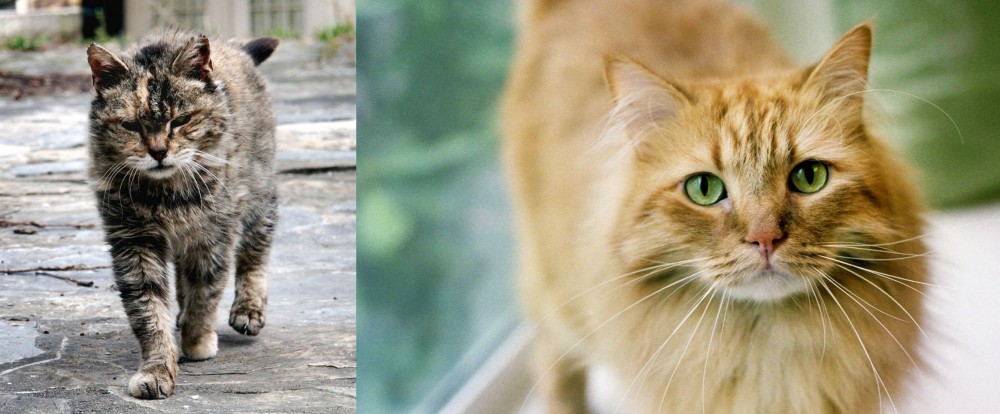 Both Farm Cat and Ginger Tabby are originated from United States. Both Farm Cat and Ginger Tabby are having almost same weight. Both Farm Cat and Ginger Tabby has same life span. Both Farm Cat and Ginger Tabby has same litter size. Both Farm Cat and Ginger Tabby requires Moderate Maintenance.
Both Farm Cat and Ginger Tabby are originated from United States. Both Farm Cat and Ginger Tabby are having almost same weight. Both Farm Cat and Ginger Tabby has same life span. Both Farm Cat and Ginger Tabby has same litter size. Both Farm Cat and Ginger Tabby requires Moderate Maintenance.
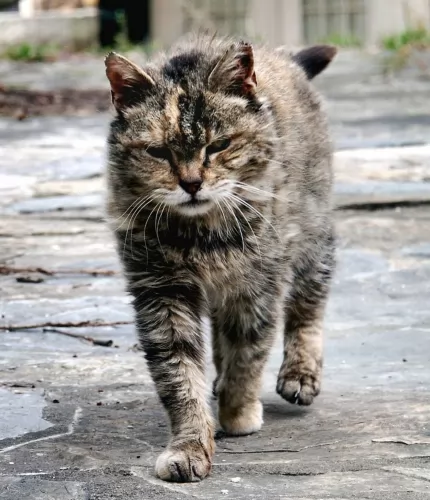 Known also as the Barn Cat, this domestic cat is of a mixed breed. The very name ‘farm cat’ is referring to a general kind of cat that lives in an almost wild state on farms and agricultural properties.
Known also as the Barn Cat, this domestic cat is of a mixed breed. The very name ‘farm cat’ is referring to a general kind of cat that lives in an almost wild state on farms and agricultural properties.
Possibly, their role in keeping rodents at bay was how they came about – domesticated to keep rodents away from grain crops.
When you do research you find that there is archeological evidence to suggests that these farm cats have been around since about 7500 BC. Most barn cats fall under the domestic shorthair or domestic longhair categories.
These cats live in a variety of conditions and some of them get their food solely from the rodents they catch. Others are tame with access to supplemental cat food as well as veterinary care.
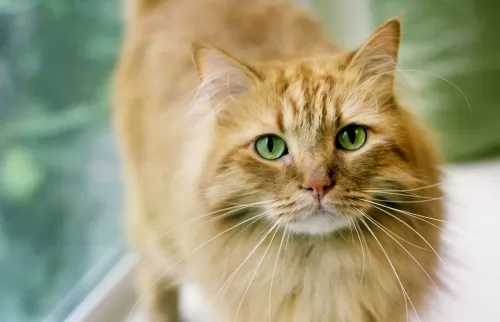 All ginger cats are tabbies – they have spots and stripes on their coat. The tabby pattern is a common wild type, and it is believed that medieval cats were tabbies.
All ginger cats are tabbies – they have spots and stripes on their coat. The tabby pattern is a common wild type, and it is believed that medieval cats were tabbies.
Most paintings and medieval manuscripts show them to be tabbies. Many people believe that these ginger cats come from a particular breed but this isn’t the case.
Ginger Cat Appreciation Day takes place in September. These cats, known as Orange Tabby Cats are very popular and they can actually have a yellow-, orange or red fur.
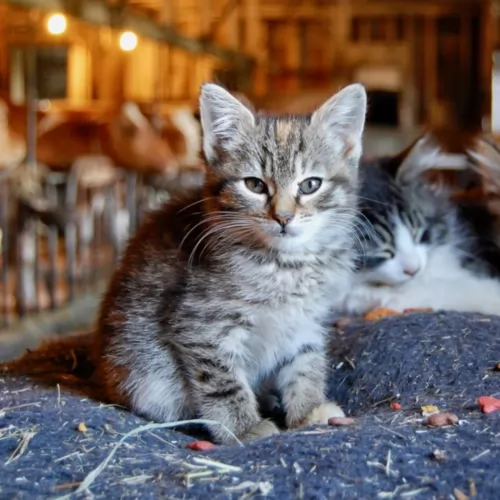 Farms cats are also members of domestic cats but it’s just that they are usually not socialized and they run away from people.
Farms cats are also members of domestic cats but it’s just that they are usually not socialized and they run away from people.
Farm cats have different histories and there is really no one-size-fits-all description of them.
They can weigh anything from 2 to 8kg. They can live to be anything between 10 and 20 years of age. Some of them are large, some small, some are solid colored while others are bi-colored and patterned. Their coats differ too and you can find short- and long-haired varieties among your farm cats
Their eyes and ears will also be in any shades and sizes and these cats are usually not spayed or neutered and can produce kittens that nobody is sure how they’ll turn out.
If you were to stumble across a farm cat born of unknown parents, there is no knowing what the small feline will behave like. Socialization and lifestyle play a big role in determining how a kitten will turn out but farm cats left to their own devices could be quiet, aggressive, loving, naughty, reticent, reserved, playful, lazy, shy or nervous.
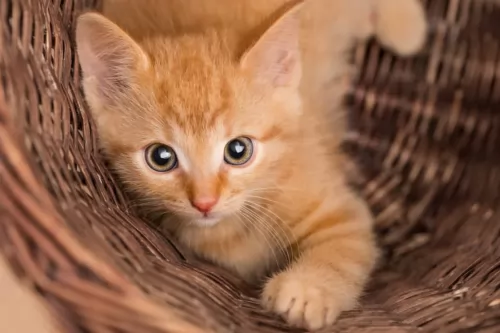 Ginger cats have different patterns to the short or long silky coats – mackerel or striped, spotted, patched, ticked, and classic.
Ginger cats have different patterns to the short or long silky coats – mackerel or striped, spotted, patched, ticked, and classic.
In fact the Ginger Tabby isn’t referring to a specific cat breed but rather a distinct color pattern. These cats get their ginger coloring from the pigment pheomelamin, the pigment red-headed humans also have.
The Ginger Tabby can range in size so generally they’re between 3 -6kg in weight. It also seems that a higher number of ginger or orange tabbies are male, put down to genetics. The eyes of the cat can be green, gold or copper.
The Ginger Tabby just loves being around his human family and to show his pleasure, you’ll hear loud purring.
They are affectionate cats and aren’t afraid to show you. These cats have a reputation for being friendly but you also have to bear in mind that a cat’s personality depends on their early socialization with people and other cats.
The Ginger Tabby is an independent, bold, courageous cat with a feisty nature.
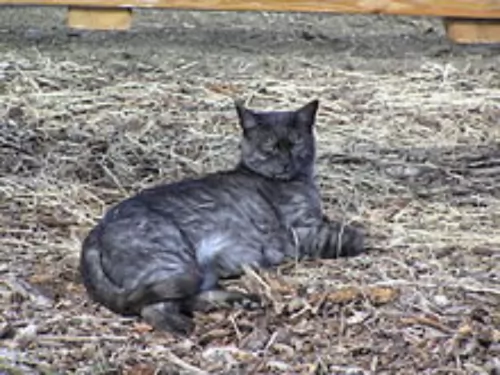 Farm cats are such wonderful animals – they just need a good chance in life like other domestic cats.
Farm cats are such wonderful animals – they just need a good chance in life like other domestic cats.
Many of them have had a hard life and it can be marvelous to open your home and heart to one or two of them and see the pleasure they bring.
They’re full of character and if you provide them with good food and a warm bed and promise to love them, you’ll no doubt be starting a solid and meaningful friendship that can enhance your life.
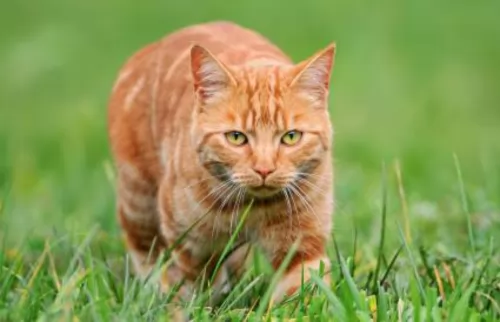 The link between personality and hair color is a talking point among humans, and so it is with cats.
The link between personality and hair color is a talking point among humans, and so it is with cats.
The Ginger Tabby, with its marmalade shade coat is feisty, playful, bold, courageous, and interesting.
Certainly, when you bring this cat into your home, not only are you going to have a beautiful cat but one that is full of character and charm.
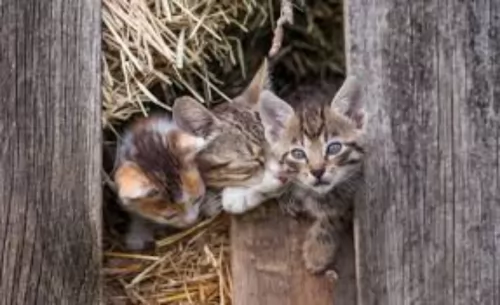 Farm cats left to fend for themselves can suffer from a host of illnesses. Eye infections are one. The cause of these eye infections is usually a virus, of which herpes, chlamydia, and Calicivirus are the most common.
Farm cats left to fend for themselves can suffer from a host of illnesses. Eye infections are one. The cause of these eye infections is usually a virus, of which herpes, chlamydia, and Calicivirus are the most common.
Your vet will certainly prescribe you some antibiotics for your kitten to help against secondary infections.
Check your farm kitten over as he is likely to have a nose full of snot as well and may even be sneezing. Take the kitten to the vet who can give him a good once-over and put him on the road to recovery.
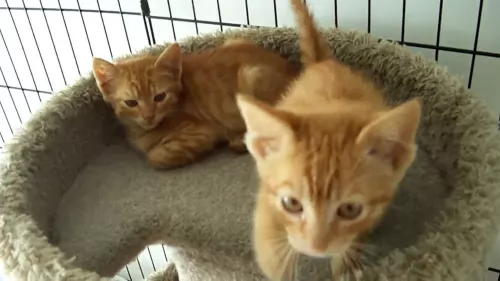 Guard your ginger tabby against eating too much and guard against a diet that is nutritionally inadequate as this contributes to poor health.
Guard your ginger tabby against eating too much and guard against a diet that is nutritionally inadequate as this contributes to poor health.
Cats are carnivores and live on meat but you can speak to your vet about giving your cat the chance of a long life by feeding him proper amounts of a healthy diet.
Make sure he also gets plenty of exercise. Offer him things to climb on, such as an indoor climbing tree so that he can exercise when you’re not there. This is important for helping him stay physically and mentally fit.
All cats are susceptible to bacterial and viral infections. Deadly diseases like this are preventable through vaccination. Vaccines offer protection from other dangerous diseases like feline leukemia virus.
All kinds of parasites – internal and external can invade your cat and make him miserable and sick and a trip to the vet is imperative.
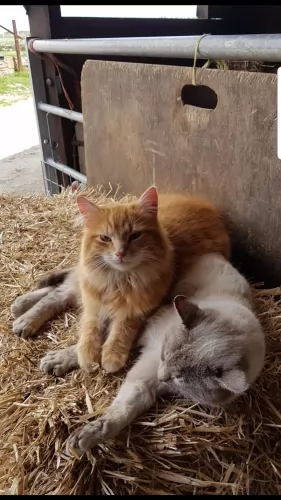 Barn cats or farm cats are not likely to have been neutered or spayed and they are just adding to the overpopulation of farm cats that can become feral cats.
Barn cats or farm cats are not likely to have been neutered or spayed and they are just adding to the overpopulation of farm cats that can become feral cats.
The average fertile cat can produce three litters every year, and with as many as 6 kittens in a litter, you can imagine how a small colony of cats can get out of control.
Sometimes cat rescue programs do a steri-drive and spay and neuter cats like this to curb the numbers. Of course, spaying and neutering can prevent many diseases as well.
If you have farm cats that have been spayed or neutered, provide them with good food and water. You can put out wet, canned cat food or dry kibble – they’ll be so pleased as most times these cats don’t even know where their next meal will come from.
You see them drinking out of puddles of water. Unfortunately, these pools are often filled with contaminants and this can also make the cats sick.
Every cat just wants a soft, warm place to sleep, and if you can, provide some warm dry hay for these farm cats. Even a cardboard box can be a haven for a cat that has never known a bed.
If you have managed to catch a farm cat kitten and you want to offer it a home, make sure to start off with veterinary care and vaccines.
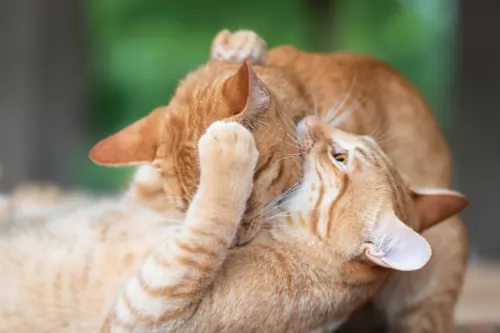 Have your Ginger Tabby cat spayed or neutered. In females, the ovaries and uterus are removed and in males the testicles are surgically removed.
Have your Ginger Tabby cat spayed or neutered. In females, the ovaries and uterus are removed and in males the testicles are surgically removed.
This common op has health benefits and decreases the likelihood of certain types of cancers in your pet. Very importantly it eliminates the possibility of your pet becoming pregnant or the male cat getting out and fathering unwanted litters. The world has too many unwanted kittens and cats as it is.
Brushing your Tabby cat will help with shedding. If you brush your Tabby once a week, you’ll remove all those loose hairs that gives your cat an ungroomed look. Cats shed more in Spring and Autumn and then you may want to increase your brushing to twice a week. Bear in mind that if your cat has shedding which is abnormal it could well be a nutritional thing. Diet is everything. He may not be getting the right mix of ingredients. Speak to your vet as your Tabby may be requiring more of certain vitamins in his diet.
Clip your cat’s nails and make a point of checking inside his mouth for bad teeth and inside his ears for wax and dirt buildup.
Your Ginger Tabby will need food and water bowls, litter box, sleeping place, collar, and toys as well as a carrier box for when he needs to get to the vet.